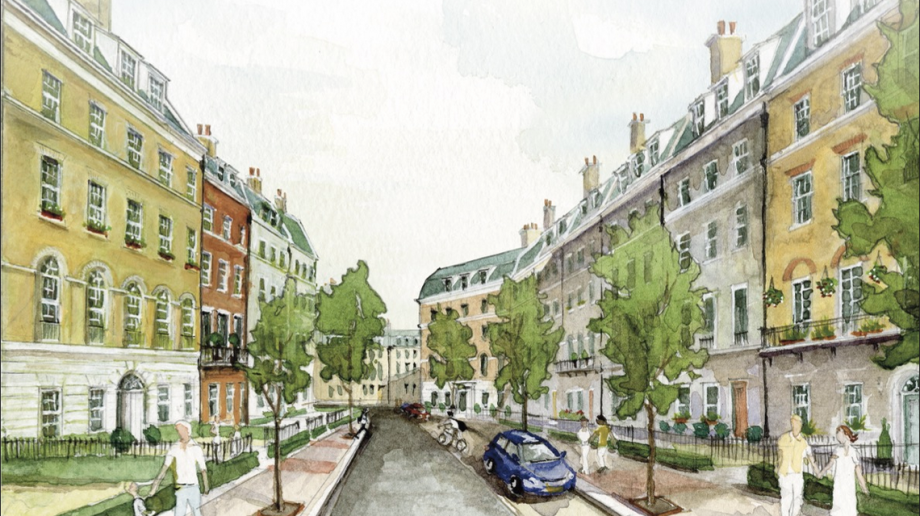Sue Robb of 4Children talks to Julie Laughton and Alison Britton from the Department for Education about the role of childminders in delivering the 30 hours free entitlement.
Give residents control over local development, says report

A new Policy Exchange report has recommended that the government should give local residents control over the development they see to help create more beautiful, walkable, and sustainable neighbourhoods.
Many parts of Britain suffer from an acute housing shortage, manifested in enormous gaps between prices and construction costs. The report says that many previous schemes aiming to resolve this issue have often failed, because the homeowners who make up two thirds of the British public have generally seen development as placing large burdens on them without any corresponding benefits.
Instead, its argues, we need a scheme that creates more good homes and better places in a way that shares the benefits with existing residents and communities, so they may become enthusiastic advocates of building rather than vigorous opponents.
The Policy Exchange paper says that by awarding control to local areas, including over architecture and design, local communities can help deliver millions of houses in the areas that need them most, which will help benefit people with short commutes and those job seeking or changing job. In many cases, an adopted ‘street plan’ would greatly increase the value of residents’ homes, giving them strong reasons to agree on it.
Additionally, the proposals would likely foster gentle intensification within about half a mile of existing transport and town centres, creating better and greener places with more customers to support struggling local high streets. More people will be able to live in neighbourhoods that pass the ‘pint of milk test’, living in walking distance of somewhere they can buy a pint of milk, along with other essential social infrastructure.
The report authors believe that the policy could create a further 110,000 homes each year for the next 15 years above current estimates. On streets that agree to allow typical forms of gentle intensification, the average participating homeowner would make £900,000, while the local authority would get an average of £79,000 for every new property delivered. The boom would mean an extra £34 billion spent on construction each year.
Peter Eversden, chairman of the London Forum of Amenity and Civic Societies, said of the report: “The ‘street votes’ approach advocated in this report offers a community-led route to suburban densification that could overcome much of the opposition sparked by developer-led initiatives. I welcome the report, and would be very interested to see trials of these ideas at sufficient scale to test them thoroughly.”
Jonathan Seager, Executive Director of Place at London First, added: “If London is to have any chance of building the homes it needs then suburban densification must be one of the many steps that are taken to increase housing supply. This report is a welcome contribution to the debate about how our suburbs can maintain their character while also providing more homes.”
Company Focus
Located in Bromley, Japanese Knotweed Eradication Ltd has been providing solutions in the treatment and removal of Japanese Knotweed (Fallopia Japonica) for over a decade. During this time we have mastered a repertoire of methods, from herbicidal treatments to landscaping solutions, tailored to address the unique challenges our clients face with this pervasive weed.
Event Diary
UKREiiF has quickly become a must-attend in the industry calendar for Government departments and local authorities.
The multi-award-winning UK Construction Week (UKCW), is the UK’s biggest trade event for the built environment that connects the whole supply chain to be the catalyst for growth and positive change in the industry.
Supplier Profiles
Geo Energy
At GeoEnergy Design, we're on a mission to disrupt the traditional way heating and cooling ha
Latest Features
Professor Harith Alani, director of the Knowledge Management Institute at the Open University explains how AI can be used for good and bad.
Alex Lawrence, head of health & social care, techUK sets out techUK’s Five Point Plan for CareTech.

















